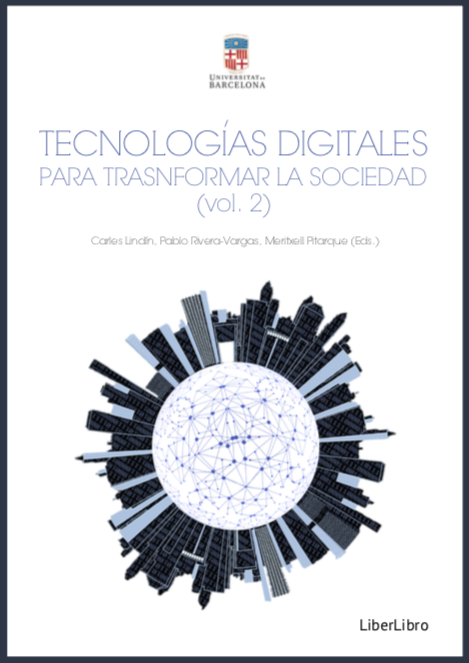New book: Tecnologías Digitales para Transformar la Sociedad (vol. 2)

The publication gathers articles of reflection and analysis arising as a result of the subject “Uses, possibilities and limits of information and communication technologies”, of the degree of Social Education, of the University of Barcelona.
Lindín, C.; Rivera-Vargas, P.; Pitarque, M. (eds.) (2019). Tecnologías Digitales para Transformar la Sociedad (vol. 2). Albacete: LiberLibro.

The book Tecnologías Digitales para Transformar la Sociedad (vol. 2) is the second edition of a collection that was born within the framework of the development of the subject “Uses, possibilities and limits of Information and Communication Technologies”, belonging to the Social Education degree from the University of Barcelona. It seeks to encourage critical thinking of students in relation to the use of these digital technologies in our day to day.
The volume begins with three chapters of the editors, which show how digital technology has brought about a change in the rules of communication, the need for public policies that perceive the digital as an element of inclusion in schools and the relevance of the incorporation of the gender perspective in the analysis of the social reality that surrounds the use of digital technology.
Then, with a special emphasis on the power of social networks as a driver of transformation, the following pages include fifteen chapters that have been written from the personal interests of students, permanently encouraged and guided by the teachers of the subject , in which we reflect, from multiple perspectives, on the social change we live in contemporaneity.
If there is a factor that all the chapters have in common, this is the weight of digital technologies in our way of understanding the world and the enormous influence they exert, sometimes unconsciously, on how we act today. It is precisely this idea that has formed the backbone that has given rise to all these creations, from which a discourse has been articulated that aims to understand, in a global way, the importance of what we circulate through the network.
